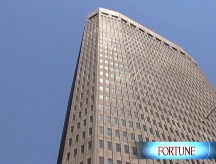Paulson: Wall Street reform needed now
Treasury chief again pushes for giving more powers to the Federal Reserve. But this time he stresses the need to act quickly.
NEW YORK (CNNMoney.com) -- Treasury Secretary Henry Paulson pressed for swift changes to how the nation's financial system is regulated Thursday, most notably giving broader powers to the Federal Reserve following the dramatic near collapse of Bear Stearns in March.
Paulson promoted the reform plan he pitched in late March. This time, however, he stressed the need to act sooner rather than later in a speech given in Washington, D.C..
"We must dramatically expand our attention to the fundamental needs of our system, and move much more quickly to update our regulatory structure," Paulson said.
Two weeks after JPMorgan Chase (JPM, Fortune 500), aided by federal regulators, announced it was buying Bear Stearns, Paulson unveiled his plan aimed at modernizing the nation's financial system.
The plan, which counts itself among a handful of proposals, would represent the biggest change in how Wall Street is regulated since the Great Depression.
One key element of the plan would include granting additional powers to the Federal Reserve, allowing the central bank to access information from financial institutions and allowing it to step in if the nation's markets were again threatened by another Bear Stearns episode.
Up to now, the Fed has played a important, albeit much smaller role in the nation's financial system - setting the country's monetary policy and acting as one of the handful of regulators responsible for overseeing the nation's banking system. The new proposal would effectively transform the central bank into a financial markets moderator.
Paulson also reiterated the need to support the fast growing over-the-counter derivatives market, which financial institutions have increasingly relied upon to hedge their bets and insulate themselves against other institutions that might default on loans.
This time however, Paulson stressed the need to act quickly, after warning in March that any changes could take "many years to complete."
While credit crunch fears have eased somewhat since March, the past few months have been bumpy for Wall Street firms and the broader financial markets, exposing what Paulson called "the outdated nature of our financial regulatory system."
Still, the former CEO and chairman of Wall Street firm Goldman Sachs (GS, Fortune 500) cautioned against too much oversight, arguing that it could eliminate the market's natural ability to regulate itself.
Other top regulators have advanced similar agendas in recent weeks.
On Wednesday, Sheila Bair, chairwoman of the Federal Deposit Insurance Corporation, pushed for the creation of a system that can handle the collapse of an investment bank, much in the way that the FDIC handles the failure of a commercial bank.
And earlier this month, Federal Reserve Bank of New York President Timothy Geithner, one of the architects of the Bear Stearns' rescue, told a gathering at The Economic Club of New York that financial institutions need to have "shock absorbers" in place when times are tough, including bigger cushions of capital and liquidity.
Putting any part of the plan into effect, however, would require legislation. The chances of that happening in an election year seems unlikely, especially since some key congressional Democrats have blasted the proposal.
When the plan was announced in March, Senate Banking Committee Chairman Christopher Dodd, D-Conn., called it a "failure of leadership" and argued that regulators are not taking advantage of the powers already at their disposal.
In addition, the Fed has already come under fire for some of the steps that it has taken in order to deal with the credit crisis.
During his speech, Paulson downplayed the criticism that erupted as a result of the Bear Stearns deal. Some have suggested the bailout created a "moral hazard" for large financial institutions by encouraging them to keep taking risks.
"We must limit the perception that some institutions are either too big or too interconnected to fail," Paulson said. "If we are to do that credibly, we must address the reality that some are."
While most of Paulson's remarks were focused on the proposed overhaul of the regulatory system for the financial services industry, the Treasury chief also discussed the broader economy.
He acknowledged that this year's economic stimulus package, which sent tax rebate checks to consumers and was aimed at reviving spending, could be offset by soaring commodity prices.
"While the stimulus is making our economy stronger than it otherwise would have been, the headwind of high energy prices has the potential to lengthen the economic slowdown," Paulson said. ![]()



